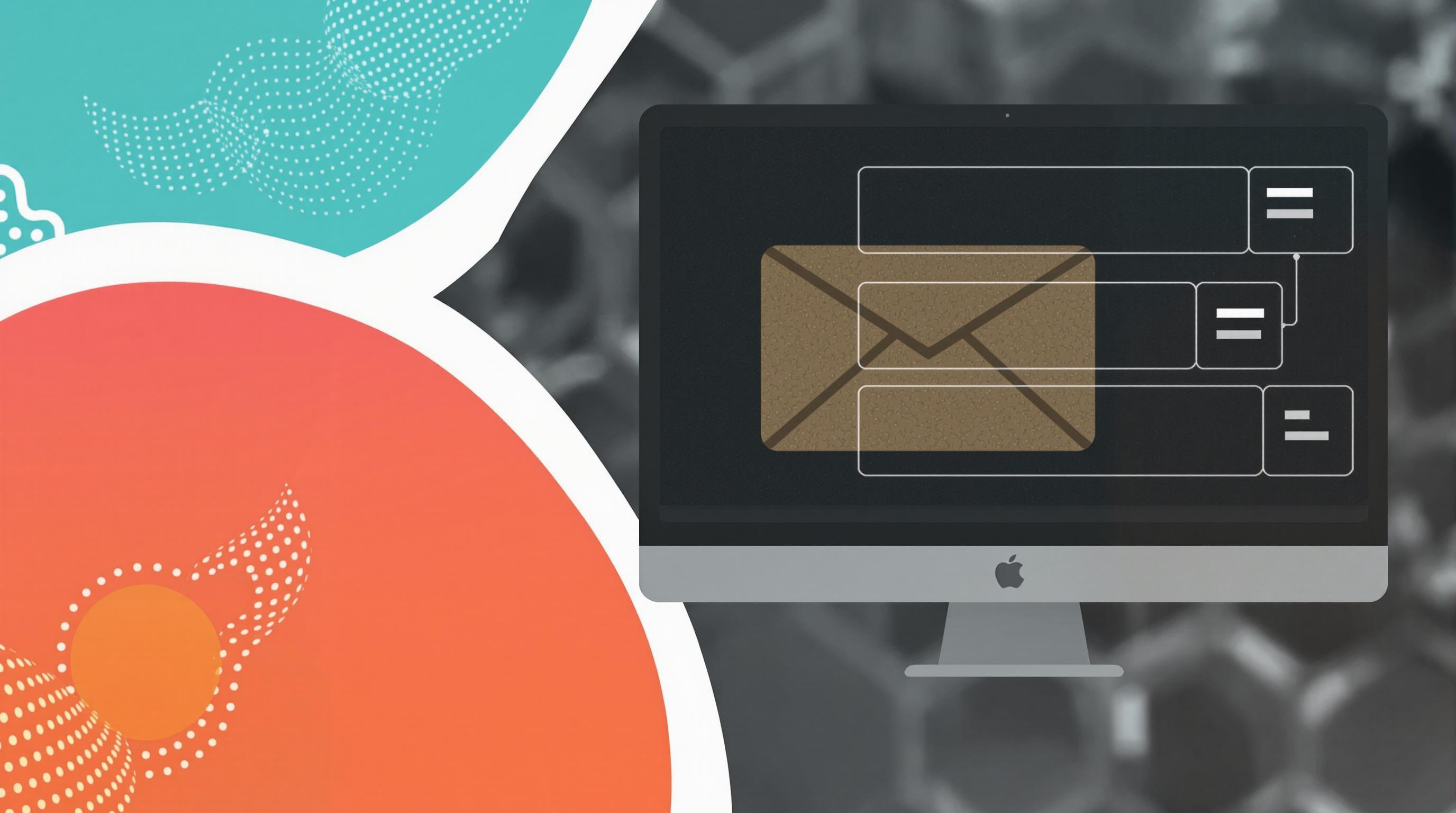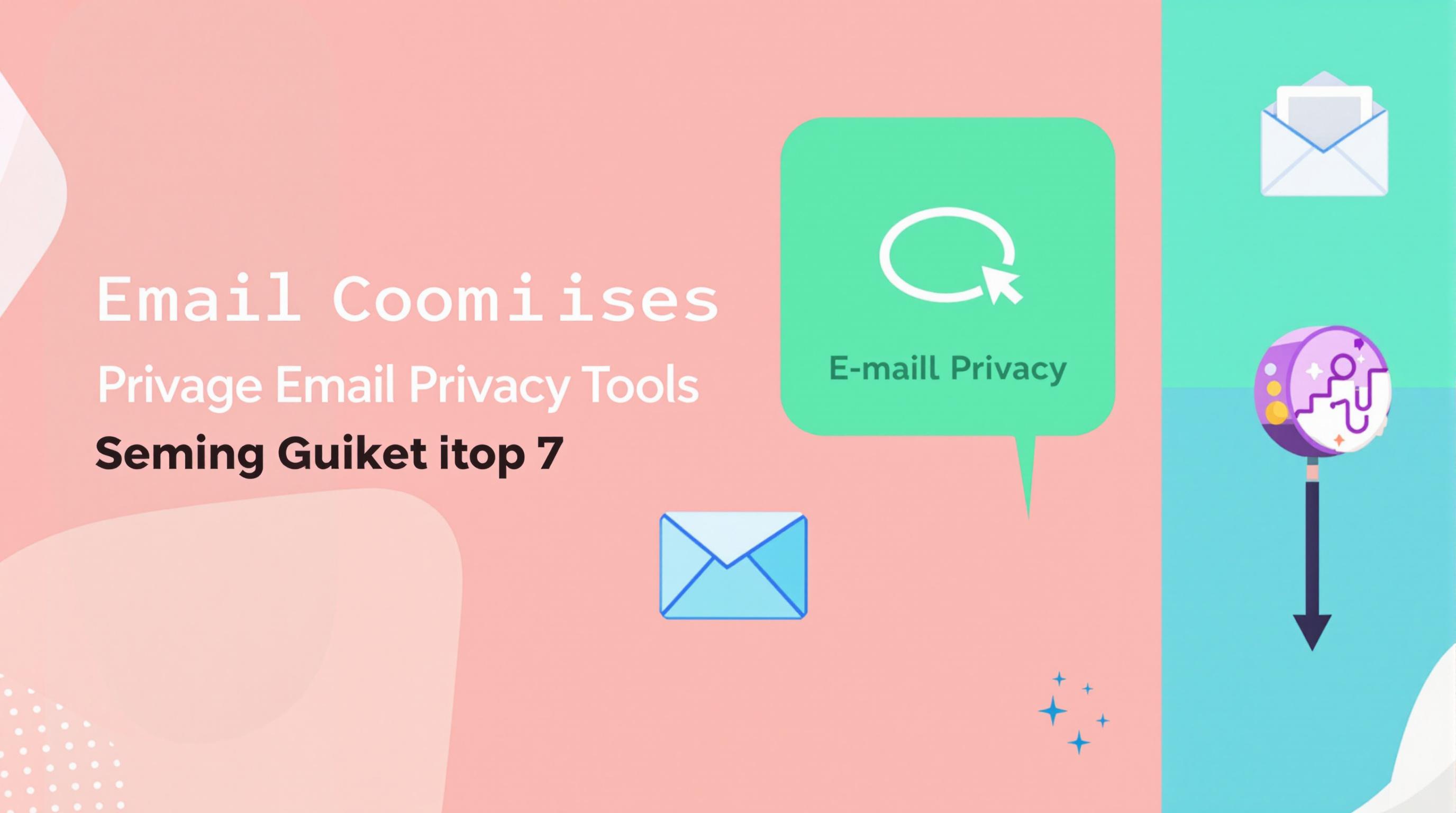Related Articles
- 8 Innovative Password Safes Released Since 2019 Changing How We Protect Our Digital Lives
- Top 6 Revolutionary Password Vaults Debuting Since 2019 That Are Disrupting Cybersecurity Norms
- 7 Innovative Browsers Released Since 2019 That Redefine Online Confidentiality and User Control
- Exploring Psychological Barriers to Adopting Enhanced Mail Safeguards Among Diverse User Groups
- Top 6 Privacy-Focused Browsers Launched Since 2019 That Outsmart Data Trackers Effortlessly
- How Antivirus Software Influences Environmental Footprints: Assessing Energy Use and Electronic Waste Trends
Top 7 Cutting-Edge Email Privacy Tools Launched Since 2019: In-Depth Rankings and Reviews
Top 7 Cutting-Edge Email Privacy Tools Launched Since 2019: In-Depth Rankings and Reviews
Top 7 Cutting-Edge Email Privacy Tools Launched Since 2019: In-Depth Rankings and Reviews
Introduction
Email privacy has become an essential concern in the digital age where data breaches and surveillance are prevalent. Since 2019, numerous innovative tools have launched, aiming to enhance the security and confidentiality of email communications. This article explores the top seven cutting-edge email privacy tools introduced after 2019, diving deep into their features, usability, and effectiveness.
With more people relying on email for sensitive conversations, securing emails against interception, phishing, and unauthorized data access is critical. Using state-of-the-art encryption, anonymous routing, and advanced authentication, modern tools protect user privacy more effectively than ever before. These technologies mark a shift in email security standards.
Our expert rankings and reviews are based on comprehensive testing, user feedback, and security analysis performed over the last few years. Whether you are an individual seeking private communication or a business safeguarding client data, this guide will help you choose the most suitable email privacy tool introduced since 2019.
1. Proton Mail Bridge (Updated 2020)
Overview: Proton Mail Bridge is an enhancement to the Proton Mail ecosystem that allows users to integrate Proton's secure email service with desktop clients supporting IMAP and SMTP protocols. Launched with significant updates in 2020, it enables encrypted email usage on third-party applications without compromising privacy.
Features: The Bridge runs locally on devices, encrypting and decrypting emails before they reach the client, ensuring end-to-end encryption is maintained. It supports multiple accounts and offers seamless integration with Outlook, Thunderbird, and Apple Mail.
Review: Proton Mail Bridge is ideal for users preferring desktop email clients but unwilling to trade privacy for convenience. Its encryption model safeguards emails effectively but requires some technical setup. According to Proton’s own transparency reports and independent audits, this tool holds up well against privacy threats.
2. TutaNota (Launched 2019)
Overview: Tutanota, launched a major upgrade in 2019, is a fully encrypted email service designed to provide open-source, secure communication for everyone. Its innovative approach offers automatic encryption of subject lines and contacts.
Features: Featuring a strong focus on usability and security, Tutanota encrypts all emails seamlessly without users needing to exchange keys beforehand. The platform also removes trackers, blocks spam, and offers anonymous sign-ups.
Review: Security experts praise Tutanota’s transparent codebase and commitment to privacy. While some limitations exist around compatibility with traditional email clients due to its proprietary encryption, the web and mobile apps provide an excellent user experience focused on privacy.
3. Mailvelope (Updated 2021)
Overview: Mailvelope is a browser extension that brings OpenPGP encryption to popular webmail providers like Gmail, Outlook.com, and Yahoo Mail. Its latest major update arrived in 2021, offering easier key management and user-friendly interfaces.
Features: By integrating encryption directly into browsers, Mailvelope facilitates seamless end-to-end encryption without switching platforms. It supports key import/export, strong cryptographic standards, and compatibility with major email services.
Review: Mailvelope is beneficial for users who desire manual control over encryption keys while retaining their familiar mail interfaces. The extension is highly rated by cybersecurity professionals but requires a learning curve for new users unfamiliar with PGP encryption.
4. FlowCrypt (Launched 2020)
Overview: FlowCrypt is a user-friendly encryption solution added to Gmail via browser extension since 2020. It simplifies the process of sending and receiving encrypted emails using PGP keys.
Features: It offers one-click encryption, automatic key generation, and easy sharing of public keys. FlowCrypt supports attachments and works both within Gmail’s web interface and mobile applications.
Review: FlowCrypt is praised for making email encryption accessible to the mainstream. Security researchers note its robust cryptographic foundation combined with an intuitive UI. However, it is mainly Gmail-centric, limiting its use with other email providers.
5. Mailfence (Enhanced in 2020)
Overview: Mailfence enhanced its secure email suite in 2020, focusing on comprehensive end-to-end encryption with digital signatures, calendar, contacts, and document storage, tailored for privacy-conscious users.
Features: This service uses OpenPGP standards and allows users to generate and manage encryption keys within the platform. It provides strong spam protection and supports both web and SMTP/IMAP clients.
Review: Consumers appreciate Mailfence’s all-in-one approach combined with privacy-centric policies. Independent security audits confirm its solid encryption methods, making it a trustworthy choice for both businesses and individuals.
6. Hey Webmail (Launched 2020)
Overview: HEY is a modern email service launched in 2020, designed with a fresh take on user privacy and control. While not completely end-to-end encrypted, its privacy features are groundbreaking for webmail.
Features: HEY offers screening of unknown senders, blocking tracking pixels, and full encryption of stored emails. Its innovative approach refocuses email on user experience combined with enhanced privacy controls.
Review: By reinventing the inbox, HEY has reshaped expectations for privacy in email. While critics note it is not fully open source and lacks traditional PGP encryption, the service's proactive privacy design has won acclaim in digital rights communities.
7. Posteo (Major updates since 2019)
Overview: Posteo is a Germany-based email provider known for privacy-first principles. Since 2019, Posteo has upgraded encryption and anonymity features to enhance user security further.
Features: Posteo supports end-to-end encryption using OpenPGP, two-factor authentication, and完全匿名 sign-up without personal data collection. The mailbox encrypts metadata and offers sustainable, secure data hosting.
Review: Privacy advocates highlight Posteo’s commitment to ethical standards and security. While requiring payment, its independent audits and strict no-logs policy make it a top-tier option for privacy-centered email users.
8. PGP Everywhere (Released 2021)
Overview: PGP Everywhere is a browser extension launched in 2021 to democratize PGP encryption by integrating it with most webmail services effortlessly.
Features: It supports automatic encryption and decryption, key creation, and seamless integration with Gmail, Outlook, and other providers. The tool prioritizes usability for non-expert users.
Review: By removing traditional PGP barriers, PGP Everywhere empowers more widespread email encryption adoption. Security reviews commend its straightforward setup and consistent performance across browsers.
9. CTemplar (Launched in 2019)
Overview: CTemplar is a secure email service launched in 2019 focusing on anonymity and forensic-resistant encryption methods to protect users from surveillance and data leaks.
Features: It offers zero-knowledge encryption, anonymous sign-up, multi-hop VPN routing, and open source cryptographic implementations to safeguard email contents thoroughly.
Review: CTemplar is regarded highly for hybrid privacy approaches combining encryption and network anonymity. Although relatively new, its robust feature set and commitment to open source principles make it promising for privacy advocates.
10. Summary and Recommendations
Choosing the best email privacy tool depends on individual needs: whether prioritizing convenience, open-source transparency, or absolute encryption standards. Proton Mail Bridge and Tutanota stand out for combining strong encryption with usability, whereas tools like Mailvelope and FlowCrypt excel in bringing PGP to mainstream users.
Services such as HEY and CTemplar innovate by reshaping user control and anonymity, respectively, offering alternative protections beyond traditional encryption. Posteo’s ethical hosting and Mailfence’s integrated suite provide comprehensive secure communication ecosystems.
For detailed research and independent security evaluations on these tools, sources like The Electronic Frontier Foundation (EFF) and PrivacyTools.io provide ongoing updates and user guides. Employing any of these cutting-edge tools launched since 2019 significantly enhances your email privacy posture in today’s complex digital environment.




